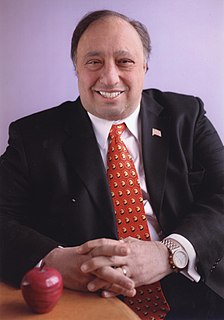A Quote by Ludwig von Mises
The common man is the sovereign consumer whose buying or abstention from buying ultimately determines what should be produced and in what quantity and quality.
Related Quotes
The real bosses in the capitalist system of market economy are the consumers. They by their buying and by their abstention from buying decide who should own the capital and run the plants. They determine what should be produced and in what quantity and quality. Their attitudes result either in profit or in loss for the enterpriser. They make poor men rich and rich men poor. They are no easy bosses.
Buy less. Choose well. Make it last. Quality, not quantity. Everybody’s buying far too many clothesI mean, I know I’m lucky, I can just take things and borrow them and I’m just okay, but I hate having too many clothes. And I think that poor people should be even more careful. It doesn't mean therefore you have to just buy anything cheap. Instead of buying six things, buy one thing that you really like. Don't keep buying just for the sake of it.
It shouldn't be the consumer's responsibility to figure out what's cruel and what's kind, what's environmentally destructive and what's sustainable. Cruel and destructive food products should be illegal. We don't need the option of buying children's toys made with lead paint, or aerosols with chlorofluorocarbons, or medicines with unlabeled side effects. And we don't need the option of buying factory-farmed animals.
Common hedging techniques include shorting stocks, buying put options, writing call options, and various types of leverage and paired transactions. While I do reserve the right to use these tools if and when appropriate, my firm opinion is that the best hedge is buying an appropriately safe and cheap stock.

































